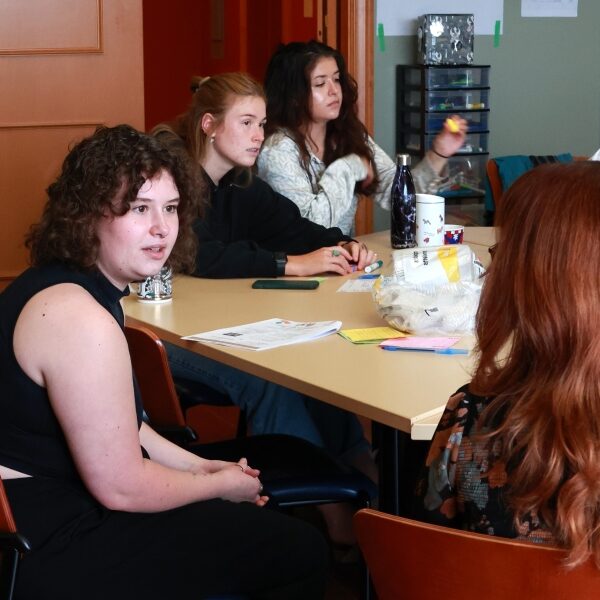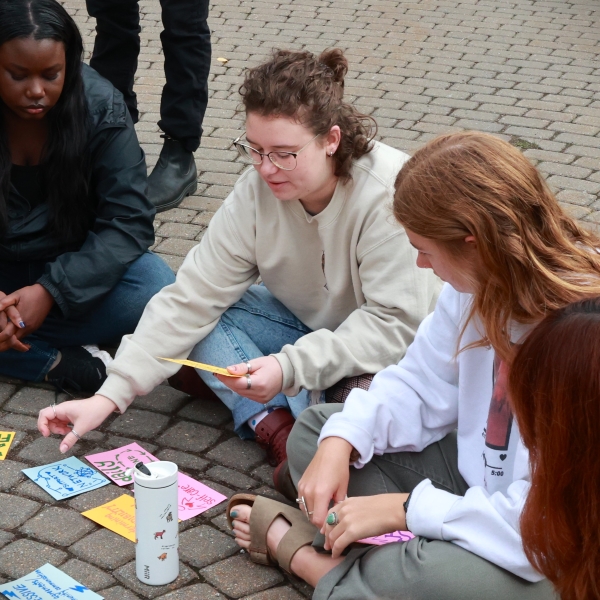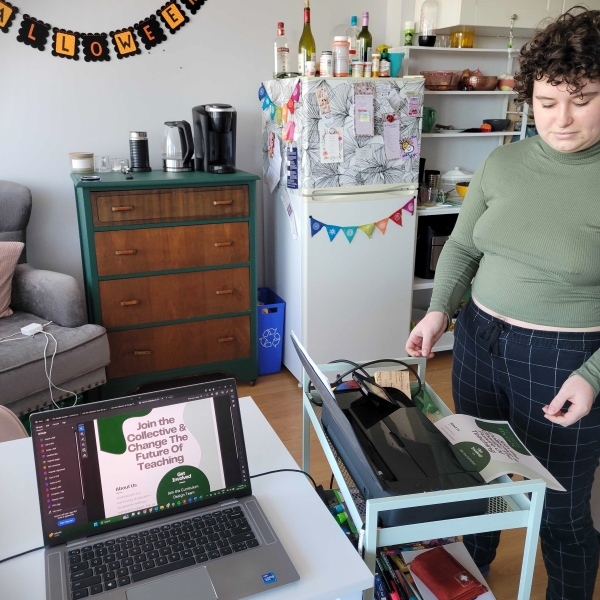Maëlle Weber is a graduate of St. Francis Xavier University (StFX)’s Women and Gender Studies program. During their second year of study, they completed a summer research project focused on asexuality and asexual perspectives on comprehensive sex education. Now, Maëlle is using their Pathy Foundation Fellowship to further their work with the launch of SEXEDUCATE – a sexuality education teaching collective aimed to provide educators with support, knowledge, and skills to deliver comprehensive sex education.
“I had really terrible sex education in school – it was basically nonexistent,” Maëlle explains. “I was really naive to a lot of aspects of sexual health and sexual education, and I didn’t really learn about any of that stuff until I got to university, and it was kind of mind blowing.”
The goal of Maëlle’s research as a StFX student was to create a framework that includes and centres asexual perspectives.
“[The goal was] to create a framework of how we should create comprehensive sex ed that isn’t just built on ‘everyone is going to have sex eventually’ because that’s what I find a lot of sex ed focuses on – that sex is natural and everyone’s going to have sex – and it’s really isolating for people who are asexual.”
I really want it to be a collaborative initiative that has a lot of different voices and has a lot of different perspectives in it and isn’t just one kind of vision.
I just really want to create a community for people.
Developing the work as a collective is an intentional and integral part of Maëlle’s process. During their previous research, Maëlle facilitated information sharing with asexual participants to help understand their experiences with sex education, and to identify gaps and opportunities for improvement for future sex education students. Now, Maëlle is working to create connections with those with a vested interest in providing sex education – such as current and future educators, sexual health centres, women’s resource centres, queer drop-in centres, and more.
“I really want it to be a collaborative initiative that has a lot of different voices and has a lot of different perspectives in it and isn’t just one kind of vision.”
And as they build a network, the collective is shaping the work together.
“The initiative has been changing a lot because of the collective aspect of it.”



One of the greatest challenges Maëlle has encountered is navigating access to information and the fact that many working in this area, such as schoolteachers, are already overworked making it difficult to ask them to take on more by participating fully in the initiative.
“Because of this, we’ve started a social media series with resource recommendations for teachers that target the specific outcomes of the curriculum that teachers have to address,” they explain.
“When I was going through the curriculum, I was looking at the resources that they were recommending and they’re from like the ‘70s and the ‘80s and are so out of date. There were a lot of resources that had a lot of problematic content, especially related to people of color, Indigenous communities, and historic African Nova Scotian communities. Based on all of the collective knowledge that we currently have, it is just not acceptable that these are the resources we’re still focusing on.
“I wanted to take the work out of it for teachers, giving them meaningful content and providing resources that really target the specific learning outcomes that are also inclusive and up to date.”
[The goal of my previous research was] to create a framework of how we should create comprehensive sex ed that isn’t just built on ‘everyone is going to have sex eventually’ because that’s what I find a lot of sex ed focuses on – that sex is natural and everyone’s going to have sex – and it’s really isolating for people who are asexual.
Over time, Maëlle hopes to continue to expand the work into other geographic areas and languages. They are currently working with a Bachelor of Education student to translate the work into French, and in the future, they hope to expand into more provinces and territories outside of Nova Scotia.
“There’s such variety across provinces and between individual schools such as public schools versus private schools. Gaining access to curriculum documents is a big challenge so I added a page on my website for people to submit curriculum documents from their province or territory.
“I just really want to create a community for people.”
To join the collective and connect with likeminded educators, contribute curriculum documents, or otherwise engage with SEXEDUCATE, visit the website or email maelle@sexeducatecollective.com.
Are you a graduating student from UOttawa, McGill, Carleton, StFX, Bishop’s, or Queen’s University? You may be eligible to apply.
To learn more about the Pathy Foundation Fellowship, visit pathyfellowship.com
